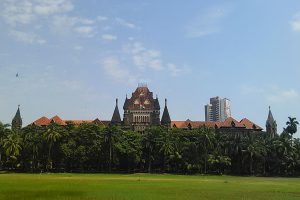Bombay High Court: Sandeep K. Shinde, J., upheld the order of the first Appellate Court whereby it reversed the trial court’s decision and held that the sister (respondent herein) was entitled to a right in the ancestral property along with her brother (appellant herein).
One Waman Bala died in 1944 leaving behind the parties herein and their mother. The character of the suit property was ancestral. After Waman’s death, the name of the brother was alone entered into the records of rights of the suit property. Their mother left the house in 1972 in a state of insanity and her whereabouts were not known. The sister, apprehending alienation of the property by the brother, filed a suit claiming her rights in the same. The suit was defended by the brother and the trial court dismissed the suit. The sister challenged the said decision and the first Appellate Court reversed the trial court’s decision. Aggrieved thereby, the brother filed the present appeal.
While discussing the law in the subject, the High Court referred to Section 3 (devolution of property) of the Hindu Women’s Right of Property Act, 1937. As per Section 3(2) and (3), if a Hindu governed by any school of law other than Dayabhaga dies, his right in Hindu Joint family property devolves on his wife with limited interest which is known as the Hindu Woman’s Estate. Also as per sub-section (1) of Section 14 (property of a female Hindu to be her absolute property) of the Hindu Succession Act, 1956 a Hindu female is a full owner of any property possessed by her, and this includes all modes of acquisition including inheritance or device [Explanation to Section 14(1)].
Thus, observed the Court: “the limited interest or Hindu Woman’s Estate [acquired under Section 3 of the Hindu Women’s Right Property Act] shall be held by the widow as full owner in terms of provisions of Section 14(1) of Hindu Succession Act, 1956″.
In the case at hand, the Court stated: “it is not in dispute that mother of the plaintiff and the defendant had died after 1956 and, therefore, her interest in the property would devolve as per the scheme in terms of Section 15 of the Hindu Succession Act, 1956. Thus, her property will devolve upon her sons, daughters and husband.”
On the holistic view of the matter, the Court found no error with the order of the first Appellate Court. Therefore, the present appeal was dismissed. [Jagannath Waman Undre v. Yamunabai Sitaram Kadam, 2019 SCC OnLine Bom 566, decided on 01-04-2019]

